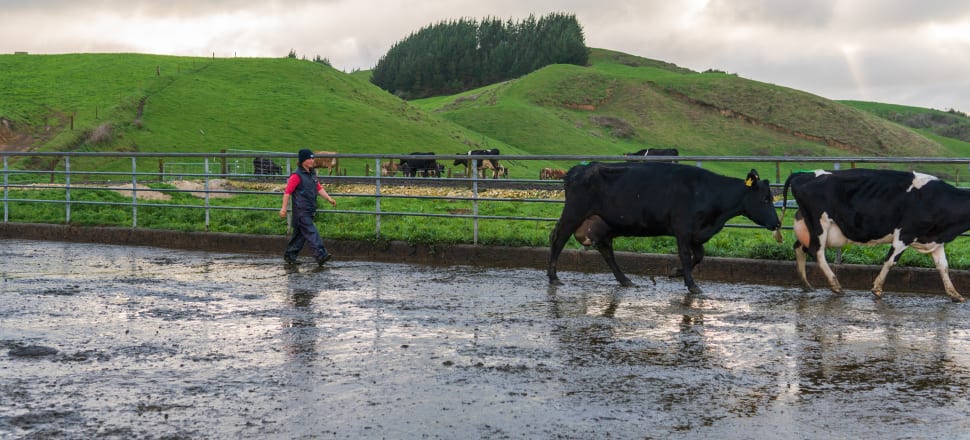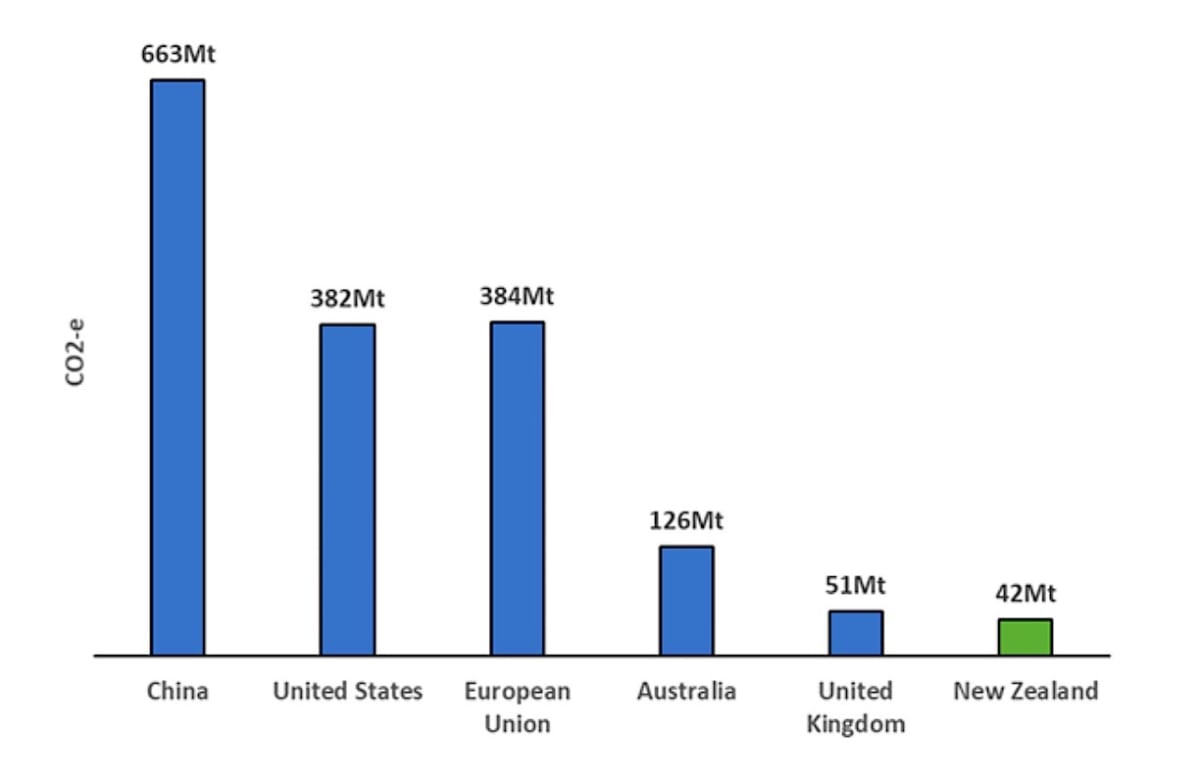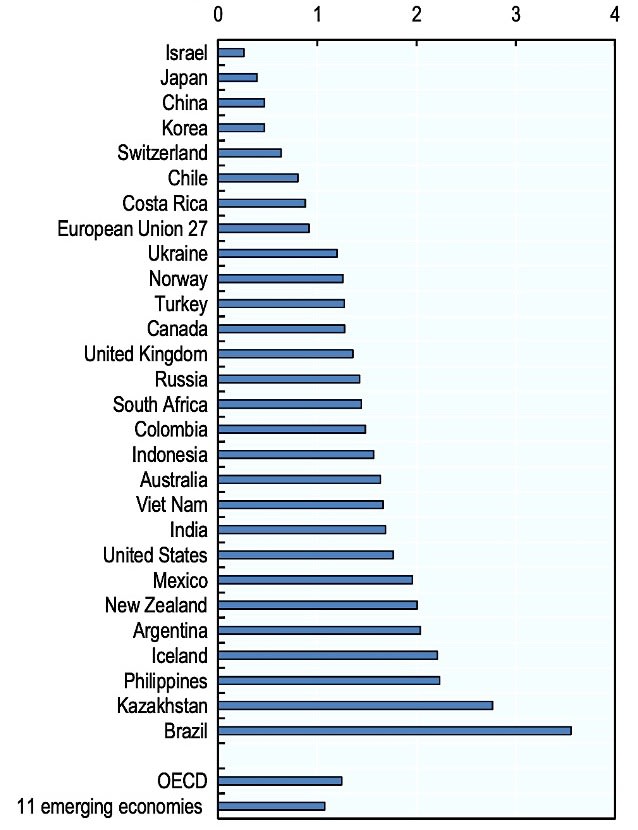
National's agricultural emissions policy is a sham and contains one of the most damaging of all declarations of climate denial
Opinion: National has just gifted status quo farmers the very thing they have long lobbied for: an agricultural emissions policy that demands very little from them, even though their activities generate almost half of New Zealand's greenhouse gas emissions.
The policy, released this week, ignores that some farmers are cutting emissions now. Far worse, it argues technological solutions to cut them will take time; the climate impact of farming is exaggerated; our farmers are already the best in the world; and they have all the time in the world to take some action. In other words, leave us alone.
READ MORE:
* Rod Oram: Farming – the next steps
* Farm pricing to cut emissions by just 1 percent
Just five points on the first page of National's policy document are all you need to read to see what a sham the policy is. It could have been written by Federated Farmers.
As it happens Paul Melville left his job as National leader Christopher Luxon's director of policy and research 15 months ago to return to Fed Farmers as its GM Policy and Advocacy.
Here are the five sentences, annotated to reflect what's going on in the real farming world here and abroad:
1. ‘Calls to downsize agriculture to reduce emissions are neither feasible nor sustainable.’
No. The call is to cut agricultural emissions in ways that improve farms and the ecosystems on which they utterly depend. For example, reducing stocking intensity, diversifying crops, increasing soil carbon and rebuilding biodiversity will make them more sustainable.
Very encouragingly some of our progressive organisations in dairy and red meat are showing they can do it. Two examples are Synlait Milk and Silver Fern Farms.
Both are working under the demanding disciplines of the Science-Based Targets Initiative, the global gold standard for corporate climate action.
To meet the initiative's 1.5C goal, for example, Synlait has committed to cutting on-farm greenhouse gas emissions (of which 65 percent is methane and 19 percent nitrous oxide) by 30 percent per kilogram of milk solids by 2030. Its latest sustainability report recorded a 9 percent reduction in the four years to fiscal 2022.
Likewise, Silver Fern Farms has committed to a 1.5C target, to which end this year it will set goals for cutting livestock emissions. "We think this will be a game-changer," it says.
This emissions policy was also discussed on this week's episode of "Raw Politics":
2. ‘Apart from making New Zealanders poorer, shutting down Kiwi farms would simply shift production to less carbon-efficient farms overseas, raising global emissions and making climate change worse.’
No. Consumers will reward our farmers if they can show they are making their food more sustainable. Currently, farming, food production and the land use changes required for them are in aggregate the largest single global source of human-induced climate change and biodiversity loss.
This is the grave climate challenge every farmer worldwide has to solve. If our farmers continue to deny that, they will destroy their competitiveness and credibility.
And no, if there is any reduction in milk and meat production here, it is meaningless in terms of global supply.
He Waka Eke Noa, the joint farming-government body that failed to agree on a farm emissions pricing mechanism, modelled that the minor emissions charge envisaged would cause New Zealand milk production to slip by 1.4 percent.
But New Zealand’s share of total global dairy production is only 2.4 percent. In fact, global dairy supply grows each year by more than the entire sector’s output here.
If our output did slip by 1.4 percent, the global dairy industry would make up the difference in less than three hours of extra production per year, I calculate from the UN Food and Agriculture Organisation’s 2021 global Dairy Market Review.
3. ‘National believes the solution to agricultural emissions is through technology, not by sacrificing our largest export sector or blanketing agricultural land in pine trees.’
No. Farmers can start making positive changes now through conventional practices and should be incentivised to do so. And no, excessive pine planting is only problematic in some parts of the country, and there are policy remedies for that.
4. ‘Promising biotechnologies like methane inhibitors, animal vaccines, gene edited grasses, and advanced animal feed all have the potential to reduce farm emissions while also delivering a step change in productivity.’
No. Those can only ever be part of the solution, and used only sparingly because our farmers trade on the quality and purity of their naturally produced food.
Yet National makes no mention in its ag emissions policy or its biotechnology policy of the threat to that reputation from excessive or inappropriate use of chemical and technological interventions.
It seems National and farmers suffer from amnesia. It was only a decade ago John Key's National-led government had to ban our farmers' use of DCD, a nitrification inhibitor, after traces of it in some dairy exports caused concern abroad.
(Incidentally, the approving Fonterra spokesman quoted in the story was Todd Muller, who went on to be National's agriculture and climate spokesman and then briefly its leader.)
5. ‘National is committed to a genuine partnership with the primary sector to meet the climate change challenge. Under National, New Zealand will remain a world-leading agricultural nation and achieve our ambitious commitment to net zero greenhouse gas emissions by 2050.’
No. Our farmers are not the low-emission world leaders they think they are, and the chart National uses to make its claim is fundamentally misleading (see below).

In its ag emissions policy paper, National says: "However, while agriculture produces around half of our emissions, New Zealand’s share of global agricultural emissions is relatively small, at just 0.4 percent. That means every 34 hours, global agriculture produces the equivalent of a year’s worth of emissions from New Zealand farms."
In other words, 'we're so small nobody will attack us'. But they will because our annual ag emissions are 8.4 tonnes per capita, whereas Australia’s are 4.9t, the US 1.1t, the EU 0.85t and China 0.47t.
Overall, our ag emissions are six times greater per capita than the global average – all to feed, supposedly, 40 million people, just 0.5 percent of the world's population.
Worse, on National's irresponsibly tardy timetable we will only start to make some minor reductions in ag emissions after 2030. That in turn will mean we will drastically fail to meet our Paris Agreement commitments through actual emission cuts here so we will have to pay some billions of dollars to buy emission cuts in other countries.
We the public would pay for that, in one way or another. That would be an unconscionable subsidy to farmers of their anti-climate actions. It would deeply damage, if not destroy, farmers' social licence to operate.
Moreover, our farmers' emissions produce surprisingly little economic value as the OECD chart below shows. It measures their kilogram of greenhouse gases CO2 equivalent per US$ of output.
On that basis, our farmers are the sixth worst in the world.

If all that isn't damning enough, National leaves no doubt as to its intentions with its policy proposal to "review methane targets for consistency with no additional warming from agriculture".
That ranks among one of the most damaging of all declarations of climate denial. It's the old and deeply discredited argument that methane breaks down over 12 years or so. Thus, if farmers don't increase their level of emissions, they aren't making global heating worse, they argue.
But they are. The methane is an astonishingly potent greenhouse gas, thus farmers must be accountable for the damage they are doing when their methane is in the atmosphere.
And even more crucially, the demand to achieve large reductions in all greenhouse gas emissions including methane is getting ever more intense as humanity gets perilously close to breaking the 1.5C threshold at which the climate crisis starts to escalate rapidly.
All humanity, farmers included, have no place to hide. National's policy to allegedly reduce agricultural emissions isn't even a fig leaf for our farmers to hide behind.







